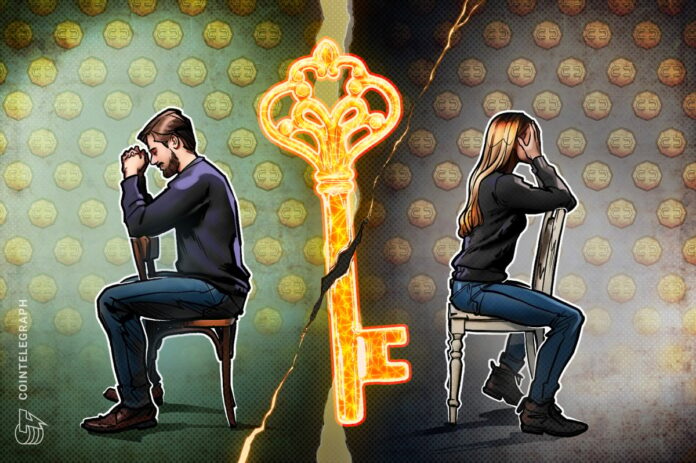Crypto and Divorce: The Surprising Truth About Sharing Digital Assets
Imagine going through a divorce and not only having to split your house or bank account, but also your Bitcoin stash. Welcome to the modern world, where digital assets like cryptocurrency are now a part of marital property. But can you divide a private key in half? The answer is no, and here’s why.
What is a Private Key in Crypto?
A private key is like the password to your cryptocurrency – a long, unique series of letters and numbers that allows you to access your crypto wallet and send or receive funds. If someone else gets their hands on your private key, they can spend your crypto, and if you lose it, you lose your crypto forever. It’s like a bank vault, but for digital money.
Can You Share a Private Key in Half?
The short answer is no, not directly. A private key is a single, indivisible data string that must remain intact to access the wallet. If you try to share it, you risk losing your resources permanently. It’s like trying to cut a password in half and expecting each half to work – it just doesn’t.
How Can You Share Crypto Access?
Fortunately, although a private key itself can’t be divided, there are secure methods that enable shared access and control of funds. Let’s explore three useful options:
1. Shamir’s Secret Sharing (SSS)
This method allows you to divide a private key into several parts, with only some needed to rebuild it. You can specify how many shares are required to reconstruct the original key, making it ideal for shared control but not easily abused.
2. Multi-Signature Wallets (Multisig)
Multi-signature wallets require multiple keys to move crypto, like a digital safe that needs more than one key to approve a transaction. This setup is useful in divorce cases, as it ensures that both parties have control over the funds.
3. Custody Services or Legal Trust Agreements
In some situations, a third party (like a law firm or crypto bank) can hold the private key and manage transactions based on a legal agreement. This guarantees that funds aren’t moved prematurely and that the process follows agreed-upon conditions.
Real-World Example: Woman Discovers Bitcoin in Divorce Battle
As cryptocurrency becomes more mainstream, it’s increasingly used to hide assets in divorce cases. A New York woman discovered her husband’s secret Bitcoin stash worth $500,000 during their separation, highlighting the need for transparency and fairness in digital asset division.
Can Digital Wallets be Traced in Divorce?
Yes, despite their claim to anonymity, digital wallets and cryptocurrency transactions can be traced using forensic accountants and blockchain analysis tools. Courts treat cryptocurrency as a marital asset, subject to the same distribution rules as other forms of property.
Beyond Divorce: Inheritance, Trusts, and Partnerships
The need to share or share crypto access goes beyond divorce, extending to inheritance, trusts, and business partnerships. Tools like Shamir’s Secret Sharing and multi-signature wallets can ensure that crypto is safely passed on to heirs or shared among partners.
Crypto Ownership is a Human Affair
Even though crypto is digital, it’s how we manage, divide, and share it in human relationships and trust that matters. You can’t divide a private key in half, but with the right tools, you can divide access, share control, and share value fairly. As cryptocurrency becomes a mainstream asset, it’s essential to know how to manage and divide it responsibly, especially during life events like divorce, inheritance, or business resolution.

